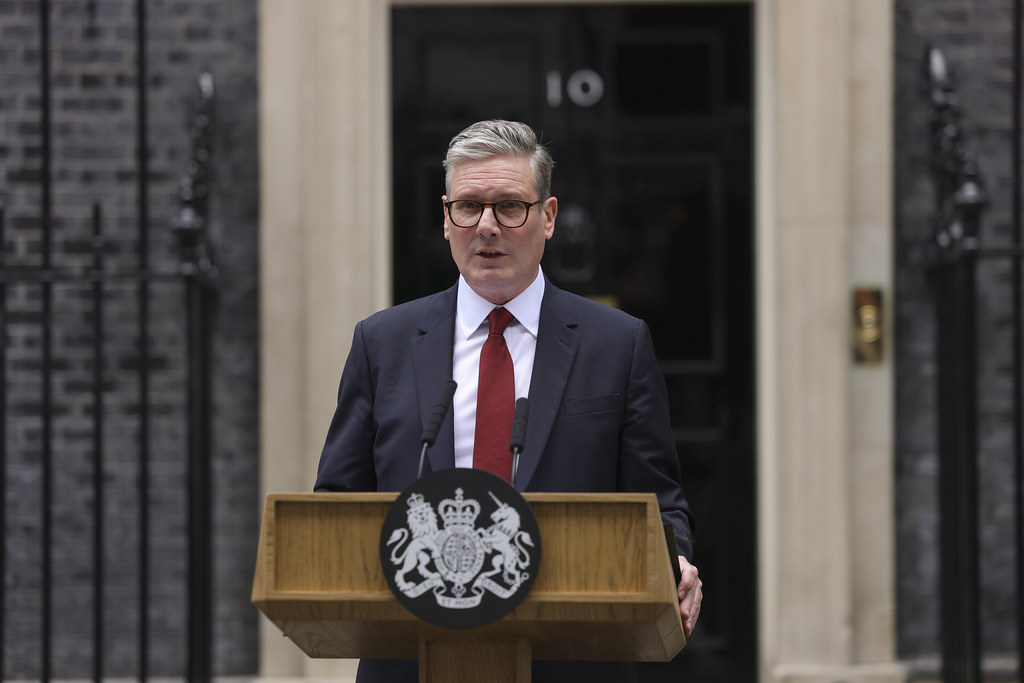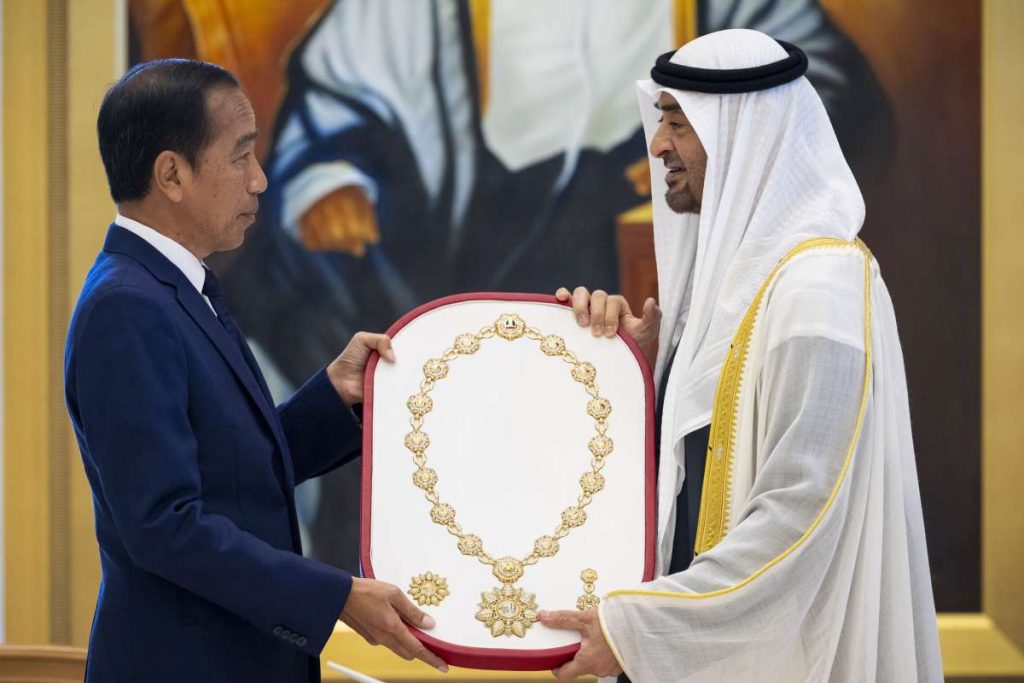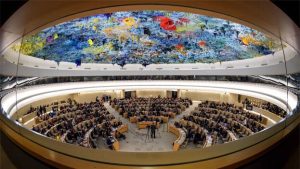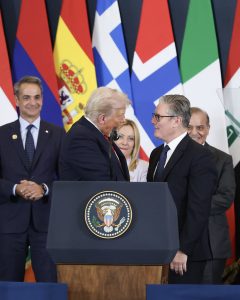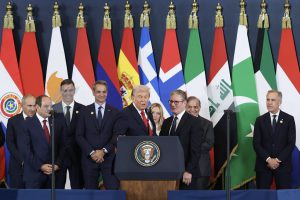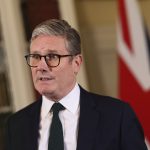The government said it would “get Britain building,” setting up a National Wealth Fund and rewriting planning rules that stop new homes and infrastructure being built…reports Asian Lite News
The new Labour Party government promised to calm the country’s febrile politics and ease its cost-of-living crisis as it set out its plans for “national renewal” at the grand State Opening of Parliament on Wednesday.
Stabilizing the UK’s public finances and spurring economic growth were at the center of Prime Minister Keir Starmer’s legislative agenda, announced in a speech written by government officials and delivered by King Charles III.
“My government will seek a new partnership with both business and working people and help the country move on from the recent cost-of-living challenges by prioritizing wealth creation for all communities,” the king said in a speech to hundreds of lawmakers and scarlet-robed members of the House of Lords.
Starmer, who has moved his left-leaning party towards the center since becoming Labour leader in 2020, campaigned on a promise to bring bold change to Britain at modest cost to taxpayers. He aims to be both pro-worker and pro-business, in favor of vast new construction projects and protective of the environment. The risk is he may end up pleasing no one.
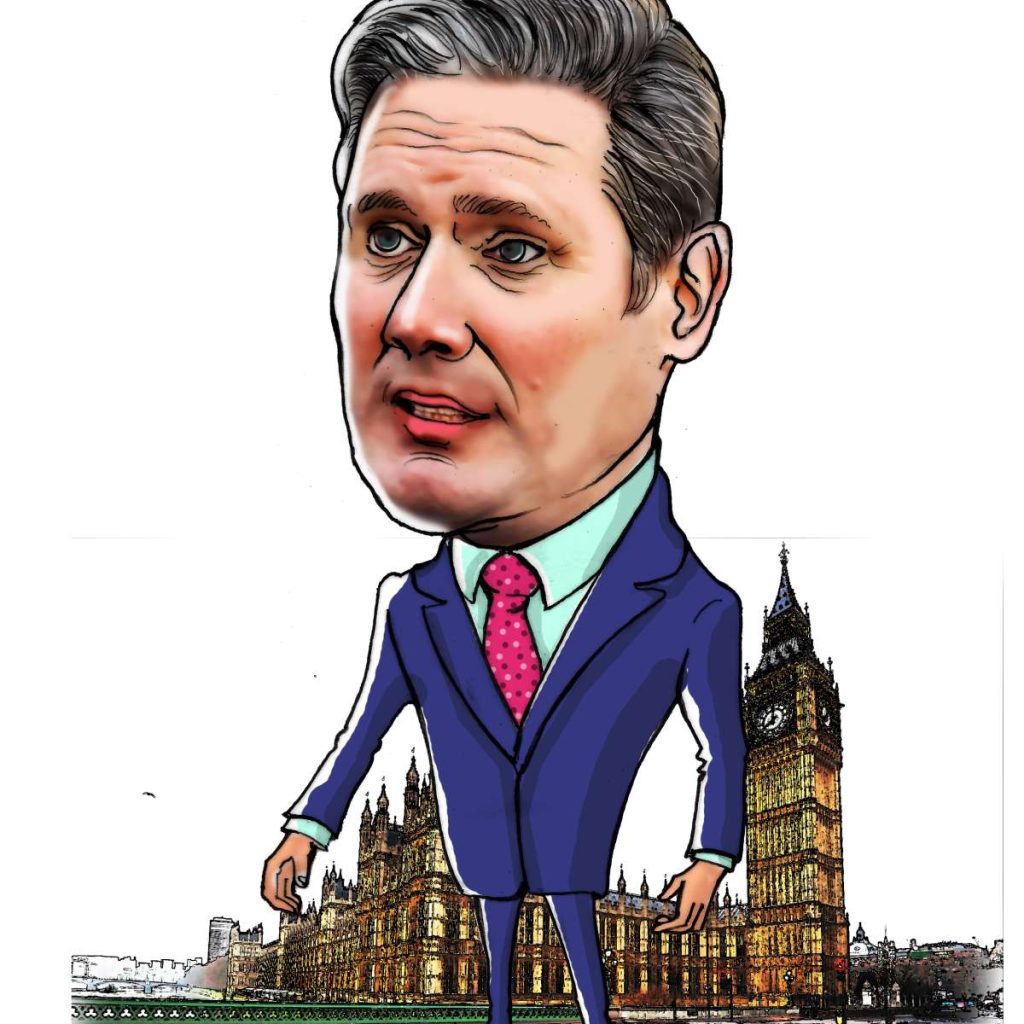
In a written introduction to the speech, Starmer urged patience, saying change would require “determined, patient work and serious solutions” rather than easy answers and “the snake oil charm of populism.”
The King’s Speech is the centerpiece of the State Opening, an occasion where royal pomp met hard-nosed politics, as the king donned a diamond-studded crown, sat on a gilded throne and announced the laws his government intends to pass in the coming year.
Labour won a landslide election victory on July 4 as voters turned on the Conservatives after years of high inflation, ethics scandals and a revolving door of prime ministers. Starmer has promised to patch up the country’s aging infrastructure and frayed public services, but says he won’t raise personal taxes and insists change must be bound by “unbreakable fiscal rules.”
But he clearly believes in an active role for the state in public life. Wednesday’s speech included 40 bills – the Conservatives’ last speech had just 21 – ranging from housebuilding to nationalizing Britain’s railways and decarbonizing the nation’s power supply with a publicly owned green electricity firm, Great British Energy.
The government said it would “get Britain building,” setting up a National Wealth Fund and rewriting planning rules that stop new homes and infrastructure being built.
Economic measures included tighter rules governing corporations and a law to ensure all government budgets get advance independent scrutiny. That aims to avoid a repetition of the chaos sparked in 2022 by then-Prime Minister Liz Truss, whose package of uncosted tax cuts rocked the British economy and ended her brief term in office.
The government promised stronger protections for workers, with a ban on some “zero-hours” contracts and a higher minimum wage for many employees. Also announced were protections for renters against shoddy housing, sudden eviction and landlords who won’t let them have a pet.
The government promised more power for local governments and better bus and railway services – keys to the “levelling up” of Britain’s London-centric economy that former Conservative Prime Minister Boris Johnson promised but largely failed to deliver.
Though Starmer eschewed large-scale nationalization of industries, the government plans to take the delay-plagued train operators into public ownership.
Trade unions and business groups gave the economic announcements a tentative welcome. Gary Smith, leader of the GMB union, called the speech a “breath of fresh air.” Rain Newton-Smith, chief executive of business group the Confederation of British Industry, said it “sets out a program of big choices and bold moves needed to deliver a shift in gear for the economy.”
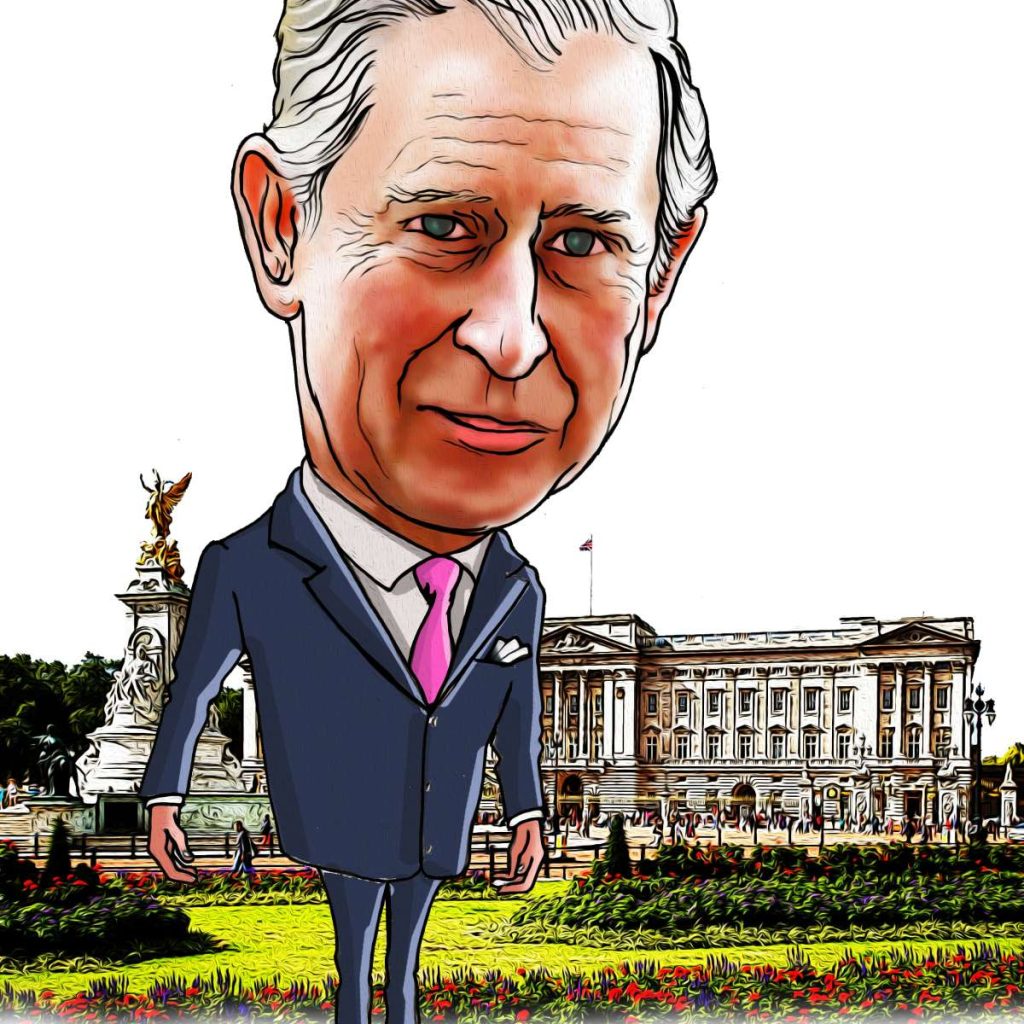
The speech said the government “recognizes the urgency of the global climate challenge” — a change in tone from the Conservative government’s emphasis on oil and gas exploration. As well as increasing renewable energy, it pledged tougher penalties for water companies that dump sewage into rivers, lakes and seas.
The speech included new measures to strengthen border security, creating a beefed-up Border Security Command with counter-terrorism powers to tackle people-smuggling gangs.
It follows Starmer’s decision to scrap the Conservatives’ contentious and unrealized plan to send people arriving in the UK across the English Channel on a one-way trip to Rwanda.
The speech also tackled an issue that has foxed previous governments: reforming the House of Lords. The unelected upper chamber of Parliament is packed with almost 800 members – largely lifetime political appointees, but including almost 100 hereditary aristocrats. The government said it would remove the “outdated and indefensible” presence of hereditary nobles, though there was no mention of Labour’s promise to set a Lords retirement age of 80.
There also was no mention of its pledge to lower the voting age from 18 to 16, though the government still plans to do it before the next election.
While Starmer’s agenda marks a break with the defeated Conservative government of former Prime Minister Rishi Sunak, he has revived Sunak’s plan to stop future generations from smoking by gradually raising the minimum age for buying tobacco.
ALSO READ-Starmer orders review of ‘hollowed out’ armed forces

